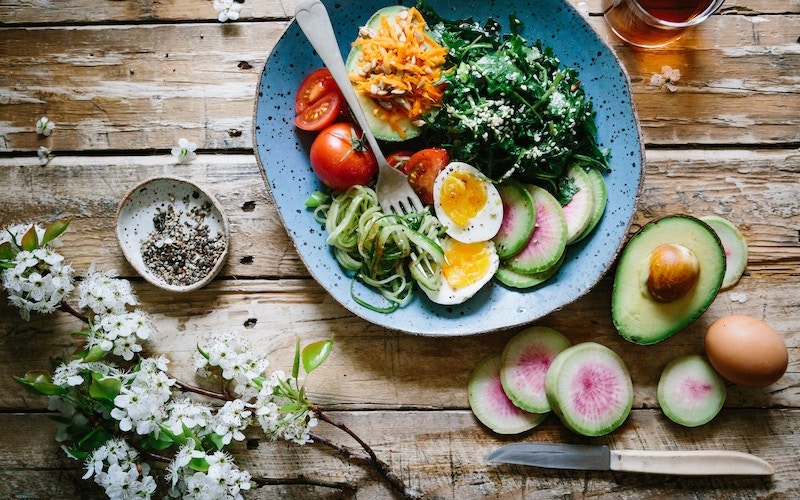What to Eat: Avoiding Boredom Syndrome
Episode #8 of the course Hack your diet: Using nutrition science to live healthier, longer, and diet-free by John Robin
Welcome to our eighth diet hack!
So far in the course, we’ve been talking all about the framework of a healthy diet. Up to this point, I’ve given you many pointers and specific examples of great foods and food regimens to get optimal nutrition.
But going further requires yet a greater hack: fighting boredom syndrome, because this will be an enemy not in the short term, but the long term. Today, we’ll talk about how to overcome it.
Be Your Own Nutrition Scientist
Everything I’ve taught you in this course so far follows one principle: All the foods I’ve listed and why to eat them, I’ve learned about over time by doing research on them.
My taste preferences are going to be different than yours. You might hate beets as much as I hate shellfish. You might love many healthy vegetables and fruits that I didn’t list. You might find that after a while, you get bored with your checklist diet and want to change it up.
You and I are exactly alike here! I have built my repertoire to be large so I have many options. This is good enough for me. What I recommend for you is that if you want more variety, then take the time to learn more about other fruits and vegetables, nuts and seeds, and grains. Use what you’ve learned in this course to do that, because you now have a foundation of what constitutes a healthy diet and can build from this.
What we want to do is avoid “boredom syndrome,” which often drives overeating or is the death of most diets.
I’m not giving you a diet. I’m giving you concrete examples of the principles behind healthy eating. You will decide on, hone, and cultivate your own diet.
I’m also giving you the tools to create a diet where you are empowered by it: That’s why we started with mindfulness meditation on food and flavors. Training yourself to enjoy different tastes gives you great power over instinct.
Having power over instinct doesn’t mean being perfect, however. It means having power to work with imperfection and use failure to learn and get better.
I hope you can appreciate why I’m turning from science and facts to a bit of a motivational pep talk today. What I have seen fail again and again and have been part of myself is the vicious cycle of trying and failing to do diets, usually based on someone’s idea of how to eat “perfectly.”
So, once more, we’re back to basic neuropsychology. Think of this as mindfulness about food on a whole other level:
• Level 1: We focused on being mindful of specific healthy foods and learning to enjoy their flavors, textures, and the experience of eating them.
• Level 2: We’re now focusing on the mindfulness of feeling great about eating great.
With this higher level of mindfulness comes the opposite: feeling bad about eating bad.
Here’s the critical trick to get out of that: Notice that you feel bad about eating bad, then begin again.
Think of dietary slips as distractions from what is, over time, a winning process.
You are a winner for investing your heart in wanting to eat right, for continuing to learn, and for training your taste instincts toward loving the best foods possible for you. You are going to feel great many times, and over time—weeks and months—you can cultivate this feeling.
Having a weekend party with friends? Traveling? Hit by a spell of busy days and losing touch with your routine? You can now draw on what will be an ever-growing inner joy of knowing you are on a journey of dietary improvement and that these “failures” are just blips in the big picture.
Action: Catch Yourself Eating Poorly, Then Begin Again
This action is exactly what it sounds like! Whether it’s today, a bad spell this week, or even if you’re in the middle of a vicious cycle right now, try to meditate on it. Instead of just being stuck in the bad feelings, see this feeling as part of a distraction from feeling great about eating healthy food.
Start again. You can always start again: It doesn’t have to be tomorrow. It can even be the next meal you eat. Always get up from the mat when you are knocked down: That is the instinct of a champion, and an inner champion waits in all of us, eager to be trained.
I hope you’re feeling inspired. We’re going to dive back into more science and how-to for the two big remaining obstacles.
Stay tuned for tomorrow’s topic: why you can kick calorie counting out the window, once and for all!
Recommended book
You Are a Badass by Jen Sincero
Share with friends

